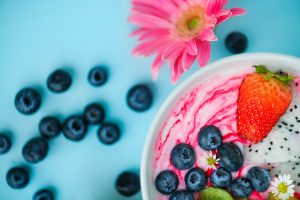24 June 2019
The natural trend and what it means for consumer insights – European insights and outlook 2018
12,000 surveyed, 11 countries.
When it comes to the evolution of natural claims in Europe, FMCG Gurus has identified the following nine steps to take:

1. Ensure maximum authenticity around natural claims
It is important that consumers can trust organisations when brands claim to be natural. This is especially important within the meat industry as natural claims on meat products influence 40% of consumers purchasing decisions.
On average 54% of European consumers agree or strongly agree that it is now difficult to monitor nutritional intake as many manufacturers try to disguise how much bad ingredients are in products. This suggests that brands need to be more transparent and authentic when claiming products are natural for consumers to be able to trust the claims.
2. Offer simplicity when it comes to ingredients
Fewer ingredients in products can be seen as wholesome, authentic and natural which interlinks with trust. 49% of consumers agree that the fewer the ingredients the better the product.
3. Ensure products are clean and chemical free
Consumers do not believe chemicals, additives and synthetics offer nutritional value and do not associate such ingredients with natural formulation. There is also a concern towards chemical sounding ingredients as 45% agree or strongly agree that chemical sounding ingredients cause concern when buying food and drink products.
4. Ensure products contain natural colouring
45% of consumers make a conscious attempt to avoid artificial colours within food and drink products.
5. Make the link between sustainability and natural formulation
Ethical and environmentally friendly groceries tend to be seen as more natural. This is seen as 51% of European consumers agree or strongly agree with this claim.
6. Make the link between local production and natural formulation
Smaller and local food and drink brands can create positive images in the mind of the consumer that is synonymous with being chemical free. On average, 47% of European consumers have a preference for smaller and locally produced groceries with Italy having the highest preference of 65%.
7. Understand consumer attitudes towards organic claims
Consumers have favourable perceptions of organic products. This is specifically important in the meat and dairy sector as 30% and 27% of consumers agree the claim organic is important when purchasing these products.
8. Adopt a holistic approach via packaging initiatives
Product packaging is also a very important factor when focusing on natural products. Many consumers are concerned about their food and drinks being contaminated by chemicals within the packaging. In France over 60% are worried about this issue.
9. Promote the wider benefits associated with natural foods and drinks.
Overall naturalness is a key factor in consumer purchasing habits. Consumers are now wanting to “feel good by doing good”. This means that consumers do not associate wellness simply with eating in a healthy manner, but also living life in an honest and ethical manner. Natural food and drink needs to promote messages around products being healthy, sustainable and compromise free when it comes to leading a healthy and balanced diet.
For more information on this report: Click Here